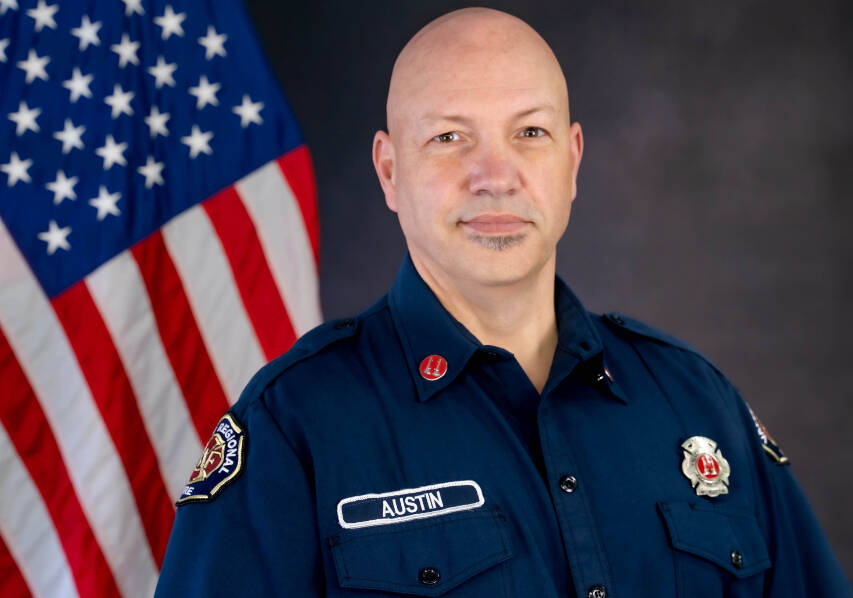You may have seen Bill Austin supervising the COVID and later the vaccine testing sites in Auburn during the dark days of the pandemic.
But those were just temporal snapshots of a 33-year career that saw the Valley Regional Fire Authority fire captain hustling to emergency after emergency, serving as a member of the department’s first respiratory team, fighting back wildfires and enjoying one of his favorite activities — training new firefighters.
It’s a remarkable career that drew to a close upon his retirement Dec. 13. Although he looked forward to the day, he knew it’d be an adjustment.
“This is something I’ve been doing since I was 18. It is a strange feeling knowing I won’t be able to climb into the cab of the engine, turn on the sirens, and focus intently with my crew on the next emergency,” said Austin.
Firefighting and Austin go back a spell.
Austin graduated from Rogers High School in Puyallup in 1985, then joined the United States Air Force, working out of Travis Air Force Base in California for four years, then taking a firefighting job with the Boeing Fire Department. In April 1991, the former Auburn Fire Department hired him, and he stayed as the department transitioned to the VRFA in 2008.
Over his 33 years in the fire service, Austin found many ways to contribute to the legacy Auburn Fire Department and to the VRFA beyond fighting fires.
For five years, Austin was public information and education specialist, teaching safety classes to all ages and serving as a liaison to the media. After that, Austin became part of the first respiratory team. As a specialist, he helped to research and purchase all new self-contained breathing apparatus (SCBA), testing and maintaining the equipment, and training firefighters on proper use. He represented his department at many events as a member of the Honor Guard and was deployed several times as a red card-certified wildland firefighter.
“I enjoyed the different types of work required on the deployments,” said Austin. “It was both exciting and humbling. The biggest reward was the gratitude of those we could help.”
In 2012, his appreciative peers named him 2012 Firefighter of the Year. Shortly after receiving the award, Austin was promoted to captain and placed in charge of the respiratory program, which he managed for nine years.
One of the things he enjoyed most during his tenure as captain was training new firefighters: “I enjoyed passing on knowledge and giving them the foundation for a successful career.”
Later in his career, Austin served a year and a half supervising the COVID testing and vaccine sites.


